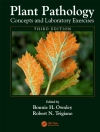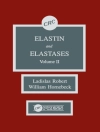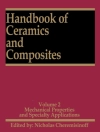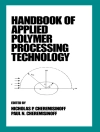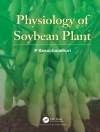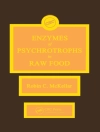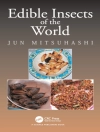The book “Salicylic acid: A Plant Hormone” was first published in 1997 and was praised for its excellent balance of traditional and modern topics. This time, we’re building on the success of the prior edition to provide an even more effective second edition. The present book is comprised of 16 chapters highlighting the updated mechanisms of its biosynthesis, physiological role, its action in response to water deficit, relationship of SA with signal transduction, transport of SA and related compounds. Further, the interplay between environmental signals and SA, its impact on transport and distribution of sugars, salicylic acid mediated stress-induced flowering and some aspects of interplay of SA with JA during the establishment of plant resistance to pathogens with different types of nutrition and participation of peroxidases have also been discussed at length. Potential use of SA in food production and its efficiency on post-harvest of perishable crops as well as practical use of SA are also covered.
İçerik tablosu
Preface.- Contributors.- About the editors.- 1. Salicylic acid: An update on biosynthesis and action in plant response to water deficit and performance under drought.- 2. Salicylic acid: Physiological roles in plants.- 3. Salicylic acid and phospholipid signaling.- 4. Transport of salicylic acid and related compounds.- 5. Interplay between environmental signals and endogenous salicylic acid concentration.- 6.Impact of salicylic acid on the transport and distribution of sugars in plants.- 7. Endogenous ABA as a hormonal intermediate in the salicylic acid induced protection of wheat plants against toxic ions.- 8. Salicylic acid biosynthesis and role in modulating terpenoid and flavonoid metabolism in plant responses to abiotic stress.- 9. Salicylic acid-mediated stress-induced flowering.- 10. Salicylic acid-mediated abiotic stress tolerance.- 11. Signaling role of salicylic acid in abiotic stress responses in plants.- 12. The interplay between salicylic and jasmonic acid during phytopathogenesis.- 13. Potential benefits of salicylic acid in food production.- 14. Short and long term effects of salicylic acido n protection to phytoplasma associated stress in potato plants.- 15. Efficiency of salicylic acid application on postharvest perishable crops.- 16. Recent advances and future prospects on practical use of salicylic acid.
Yazar hakkında
Dr. Shamsul Hayat is an Associate Professor, in the Department of Botany, Aligarh Muslim University, Aligarh, India and presently working as Associate Professor in the Department of Botany & Microbiology, King Saud University, Riyadh, Saudia Arabia. He received his Ph.D. degree in Botany from Aligarh Muslim University, Aligarh, India. Before joining the Department as faculty, he has worked as Research Associate and Young Scientist in the same Department. His major areas of research are phytohormones and heavy metal stress in plants Dr. Hayat has been awarded Prof. Hira Lal Chakravorty Award by Indian Science Congress Association, Kolkata, India, Associate of National Academy of Agricultural Sciences, New Delhi, India, BOYSCAST fellow by Department of Science & Technology, Government of India, New Delhi and young scientist by Association of the Advancement of Science, Aligarh, India. He has been the Principal Investigator of the various projects sanctioned by different agencies and guided three students for the award of Ph.D. degree and two students for the award of M.Phil degree. Dr. Hayat has published more than hundred research papers in leading journal of the world such as Environmental & Experimental Botany, Plant Physiology & Biochemistry, Environmental Pollution, Plant Signalling&Behaviourand also published nine books published by Kluwer Academic, Springer, Wiley-VCH, Science Publisher and Narosa Publishing House. His works has been cited in various journals and at present about 1500 citation has been noted.Dr. Aqil Ahmad is the senior most Professor, in the Department of Botany, Aligarh Muslim University, Aligarh, India. He was conferred Ph.D. by Aligarh Muslim University, Aligarh in 1975. Dr. Ahmad worked as Post-Doctorate Research Fellow of Danish International Development Agency (DANIDA) in Plant Physiology at Royal Vet. & Agric. University, Denmark. He has also worked at Department of Applied Sciences, Higher College of Technology, Muscat, Sultanate of Oman. He has been the Principal Investigator of various projects sanctioned by different Government agencies and guided six students for the award of Ph.D. degree. His current research area includes phytohormones and heavy metal stress. Dr. Ahmad has published more than hundred research papers and has edited a number of books, published by various leading publishers of India and Europe. His work has been cited in various leading journals.Dr. Mohammed Nasser Alyemeni is a Professor in the Department of Botany & Microbiology, King Saud University, Riyadh, Saudia Arabia. He has completed his M.Phil from Reading University U.K. and Ph.D. from Edinburgh University, U.K 1989. He has been the principal investigator of the various projects and guided four students for the award of Ph.D. degree. Dr. Alyemeni has published more than fifty research papers and also authored four books in the area of plant ecology in arabic language. His current area of research is eco-physiology. He was the regional editor of Pakistan Journal of Biological Sciences. He has attended various national and International conferences in various countries.


